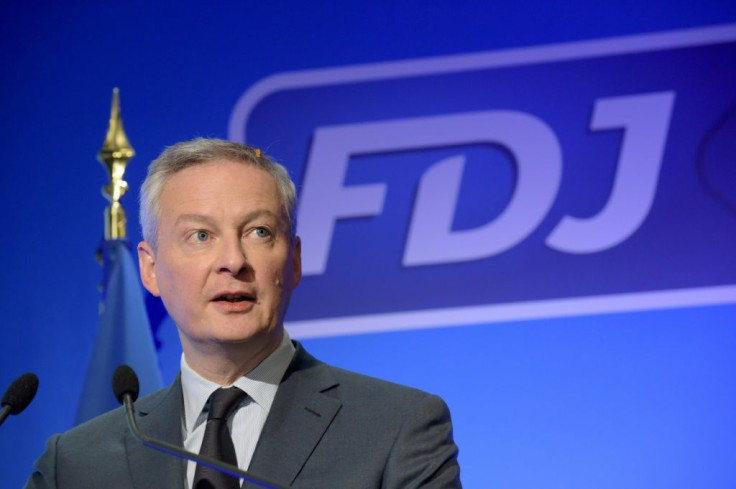France Sees 2 Bn Euro Payoff As Lottery IPO Launched

France's state-owned lottery monopoly kicked off its shift to private hands Thursday, launching the sale of shares in the company that is likely to bring nearly two billion euros ($2.2 billion) to government coffers.
The privatisation is part of President Emmanuel Macron's broader reforms to re-vitalise the French economy and make it more welcoming for foreign investors.
The sale of a 52 percent stake in the Francaise des Jeux (FDJ), whose scratchcards and lotteries are played by millions, could also help jump-start the reform drive after it was knocked off track by the "yellow vest" protest movement.
The protests, which erupted last year and often spiraled into violent clashes with police, saw Macron accused of ignoring the day-to-day struggles of ordinary French.
Such citizens are a key target of the public offering for FDJ, which set the indicative price for shares in the operator at between 16.50 and 19.90 euros.
That would value the company at up to 3.8 billion euros, and a third of the shares have been reserved for individual investors, who are being offered a two percent discount.
"It's a chance for the French to diversify their holdings at a time when interest rates are low," Finance Minister Bruno Le Maire said at a press conference at the firm's headquarters southwest of Paris.
"It isn't just one more privatisation, but a thought-out political strategy," he said, since the funds would open the door to new development prospects.
The government hopes the sale will rekindle demand for stocks among French savers, many of whom have stuck massively with ultrasafe but low-interest savings accounts since the 2007-2008 financial crisis.
"It's an opportunity to renew interest in the market with a simple product. When you're an individual, you need to invest for the long term," FDJ's chief executive, Stephane Palloz, told BFM television on Thursday.
"We offer an attractive yield for a less risky product," she said.
To further entice individual investors, they will be given a free share for every 10 bought if they hold them for at least 18 months.
France is one of only a few countries to enable such investment opportunities for individuals. Would-be investors in most other countries have to wait for the first day of public trading to buy.
The subscription period runs to November 20, and trading will begin the next day.
Prime Minister Edouard Philippe's government has vowed to partially privatise a number of entities, including the airports operator ADP and the energy behemoth Engie, to feed a 10 billion euro fund to kickstart technological innovation.
FDJ came into being as the successor of a national lottery founded in 1933 to help soldiers disfigured in World War I and struggling farmers.
It is a comparatively rare case of a French public enterprise in robust financial health, and is well known by the public, who made 16 billion euros' worth of flutters on assorted games of chance last year.
It is the second-biggest betting company in Europe and the fourth in the world.
The state will retain a 20 percent stake in the company, and will benefit from a yearly public contribution of some 3.5 billion euros, as well as a 380 million euro annual payment for a 25-year monopoly license.
But critics and opposition parties have assailed the move to offload a rare money-making state enterprise, saying it is tantamount to selling off "the family jewels".
Le Maire rejected the claims Thursday, saying "FDJ is part of our national heritage."
"It should belong to the French thanks to a popular participation (in the IPO) as broad as possible," he said.
cd-kd/js/jh
© Copyright AFP 2024. All rights reserved.





















